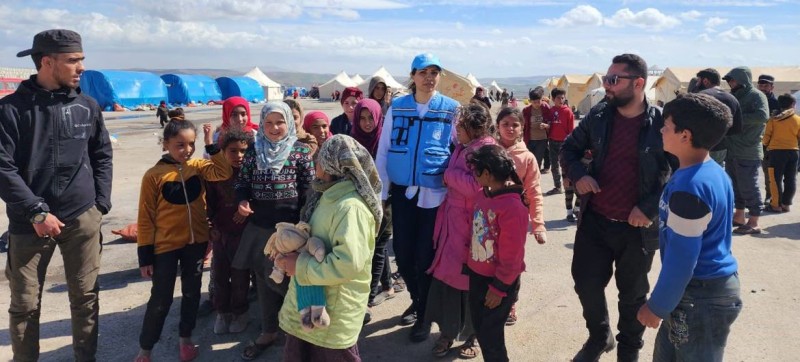
UN News/Shirin Yaseen Shirin Yaseen (centre) visits a camp for displaced people in Jindairis in northwestern Syria.
Shirin Yaseen from the Office of the Spokesperson for the UN Secretary-General visited northwestern Syria as part of an interagency mission to assess the situation there.
“On the day we visited Jindairis in northern Syria, one of the areas most affected by the February earthquake, the weather conditions were very bad. A mobile medical clinic housed in a tent was lifted off the ground by high winds scattering supplies and medical instruments.
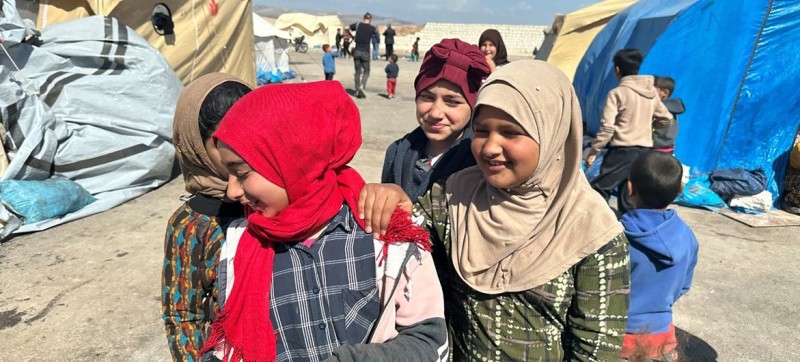
UN News/Shirin Yaseen Young girls play at a reception center for displaced people in Jindairis, Aleppo governorate.
The dreams of the children in this camp are simple. One told me that she needs glasses, another decent shoes so she can walk the camp’s unpaved roads. A young girl, Ahlam, told me all she just wanted was to go back to school. A mother asked for a wheelchair for her 20-year-old daughter.
Earthquake experience
In another camp, in Idleb, called Kammonah I met Yazi Khaled Al-Abdullah whose suffering reflects the experience of hundreds of thousands of people who were made homeless as a result of the earthquake.
She told me how at four o’clock in the morning she felt shaking but didn’t know what was happening. Her children told her not to be afraid and after they all left their house it collapsed. It was rainy and they were shivering from cold, but didn’t know what to do or where to go.
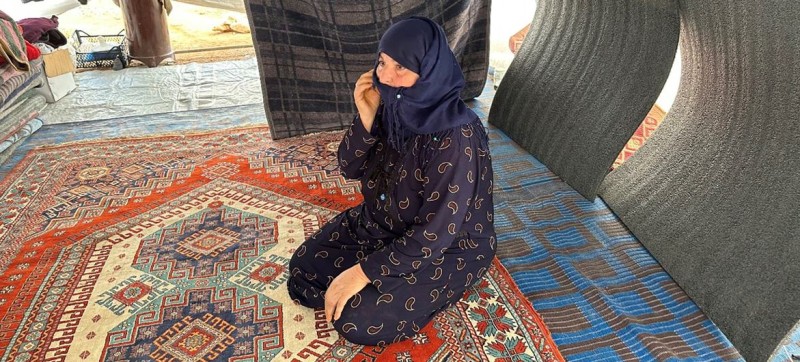
UN News/Shirin Yaseen Yazi Khaled Al-Abdullah has been living in a tent following the earthquake.
They ended up at Kammonah camp and were advised to sign up for a shelter. A month after the quake they are still living in a tent with two other families.
Yazi Khaled Al-Abdullah told me that she loves to cook but doesn’t have pots or a gas stove. Sometimes prepared food, usually rice, is provided, but she has diabetes, so is not getting the nutrition that she needs.
She and her family are desperate to return home even if that means living a very basic life. She used an Arabic expression which says that even if they have only dirt to eat, they still want to go back to their hometown.
Her family left Sinjar eight years ago because of the war in Syria and spent time here and there. She told me her son and husband were working their land and tending sheep when they were killed by a plane. In her words, they have become martyrs.
I also met Mazyad Abdul Majeed Al-Zayed, who runs the Ajnadayn camp in Jindairis and who himself is a victim of the earthquake.
He explained the difficult conditions in which the camp residents live, due to a shortage of everything, including tents. Mobile clinics operate in the area, but they lack medicine and come only sporadically.
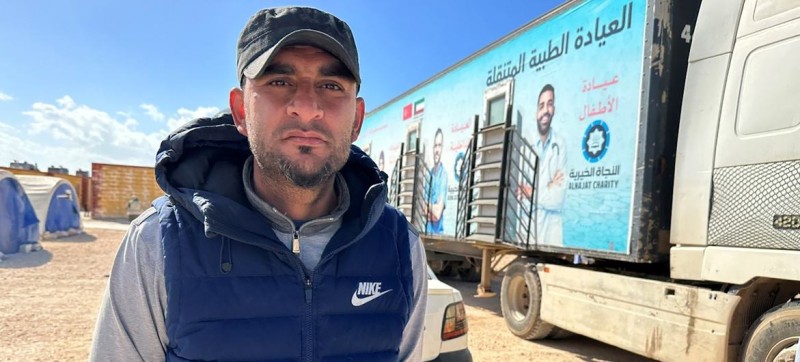
UN News/Shireen Yaseen Mazyad Abdel-Majeed Al-Zayed, manages Ajnadayn camp in Jindairis.
He said the camp is miserable and that he did not bring his family here as he could not bear to see them live in such conditions.
Later I visited tents set up opposite the Al-Rafa Specialized Hospital in Jindairis, which housed mobile clinics, including one for children and one for women.
Patients and visitors are received daily in these clinics, which were established several days after the earthquake.
The hospital is surrounded by destroyed buildings, and the medical staff live and work in the same conditions as the people they are treating.
The medical system in this part of Syria was overburdened even before the earthquake, and now the medical staff is exhausted and equipment is almost completely broken.
Countless people affected by the earthquake have sought refuge in this area in northwestern Syria. Many did so to escape the war which has been raging for 12 years now.
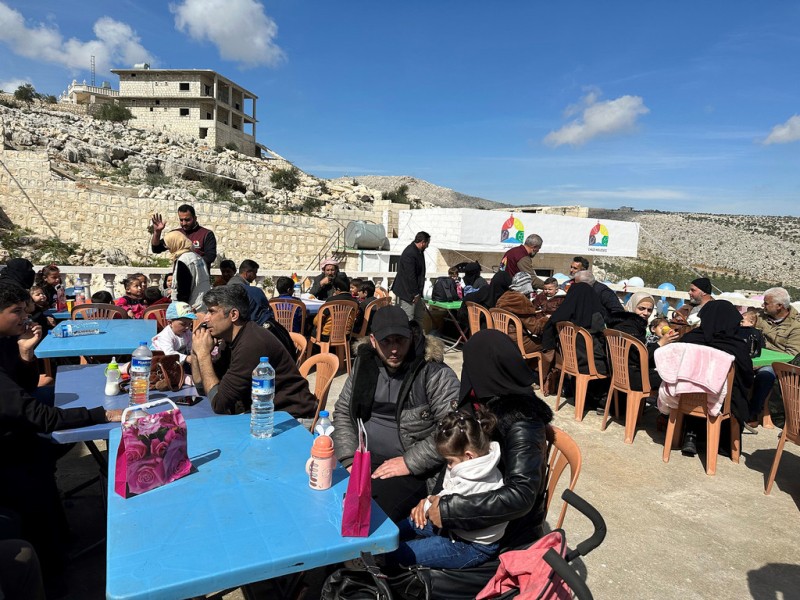
UN News/Shirin Yaseen The UN launched a $400 million humanitarian appeal to support displaced families.
A woman I spoke to said she had no idea what her future would hold having fled over a period of five years from Saraqib to Afrin, which was bombed, and then to Jindairis.
I met and spoke to so many people including young unaccompanied children who had been separated from their parents, whose lives had been upended by the war and then the earthquake.
But I also met people who had hope and optimism for a brighter future. I met diligent and caring aid workers who partner the UN and who try every day to improve the lives of those affected.
Meanwhile, the UN has launched a $400 million humanitarian appeal, and continues to work with its partners to ensure that relief supplies reach the most vulnerable people.
Find more here about the work of the UN in Syria.
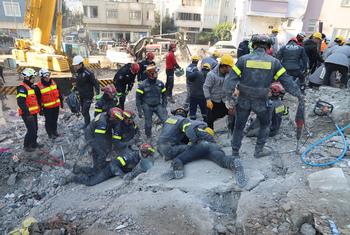
Türkiye-Syria Earthquake
DONATE!
Emergency and search-and-rescue teams have deployed to assess and prioritize urgent needs and to provide life-saving assistance following the devastating earthquake near the Türkiye-Syria border.

